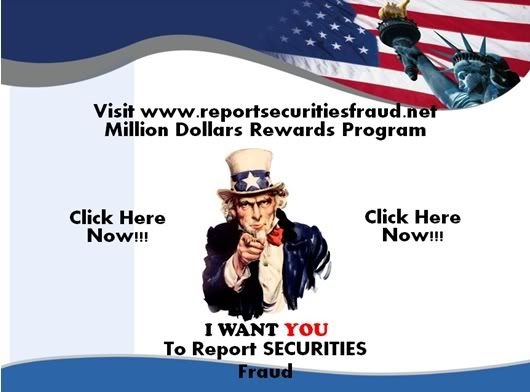Washington D.C., Sept. 6, 2013 —
The Securities and Exchange Commission today charged the former head of investor relations for a Tempe, Ariz.-based solar energy company with violating rules requiring fair disclosure of information when he alerted certain analysts and investors about an upcoming major development.
Regulation FD requires material nonpublic information to be disclosed publicly in a broad manner and not selectively. An SEC investigation determined that Lawrence D. Polizzotto, a former vice president at First Solar Inc., violated Regulation FD when he indicated in phone conversations with some analysts and investors that the company was unlikely to receive a much-anticipated loan guarantee from the U.S. Department of Energy. When First Solar broadly disclosed this material information in a press release the next morning, its stock price dropped 6 percent.
Polizzotto agreed to pay $50,000 to settle the SEC’s charges.
“Polizzotto offered previously undisclosed information to select analysts and institutional investors and left the rest of First Solar’s investors in the dark,” said Michele Wein Layne, Director of the SEC’s Los Angeles Office. “All investors, regardless of their size or relationship with the company, are entitled to the same information at the same time.”
According to the SEC’s order instituting a settled administrative proceeding, Polizzotto attended an investor conference on Sept. 13, 2011, with First Solar’s then-CEO, who publicly expressed confidence that the company would receive three loan guarantees totaling approximately $4.5 billion for which the company had received conditional commitments from the Energy Department. However, two days later, Polizzotto and several other executives learned that the company would not be receiving at least one of the loan guarantees. A group of employees including Polizzotto and one of First Solar’s in-house lawyers began discussing how and when the company should publicly disclose the loss of the loan guarantee. The company lawyer specifically noted that when the company received official notice from the Energy Department, “we would not have to issue a press release or post something to our website the same day. We would, though, be restricted by Regulation FD in any [sic] answering questions asked by analysts, investors, etc. until such time that we do issue a press release or post to our website…”
According to the SEC’s order, Polizzotto violated Regulation FD during one-on-one phone conversations with approximately 20 sell-side analysts and institutional investors on Sept. 21, 2011 – the day after a Congressional committee sent a letter to the Energy Department inquiring about its loan guarantee program and the status of conditional commitments, including three involving First Solar. This Congressional line of inquiry caused concern within the solar industry about whether the Energy Department would be able to move forward with its conditional commitments. Analysts began issuing research reports about the Congressional inquiry, and analysts and investors began calling Polizzotto. Despite knowing that the company had not yet publicly disclosed anything, Polizzotto drafted several talking points that effectively signaled that First Solar would not receive one of the three loan guarantees. His talking points emphasized the high probability of receiving two of the loan guarantees and the low probability of receiving the third. Polizzotto delivered his talking points in the one-on-one calls with analysts and institutional investors, and he directed a subordinate to do the same. Polizzotto went even further than his talking points when he told at least one analyst and one institutional investor that if they wanted to be conservative, they should assume that First Solar would not receive one of the loan guarantees.
Polizzotto agreed to settle the SEC’s charges without admitting or denying the findings. In addition to the $50,000 penalty, he agreed to cease and desist from causing any violations and any future violations of Regulation FD and Section 13(a) of the Securities and Exchange Act of 1934.
The SEC has determined not to bring an enforcement action against First Solar due to the company’s extraordinary cooperation with the investigation among several other factors. Prior to Polizzotto’s selective disclosure on September 21, First Solar cultivated an environment of compliance through the use of a disclosure committee that focused on compliance with Regulation FD. The company immediately discovered Polizzotto’s selective disclosure and promptly issued a press release the next morning before the market opened. First Solar then quickly self-reported the misconduct to the SEC. Concurrent with the SEC’s investigation, First Solar undertook remedial measures to address the improper conduct. For example, the company conducted additional Regulation FD training for employees responsible for public disclosure.




























